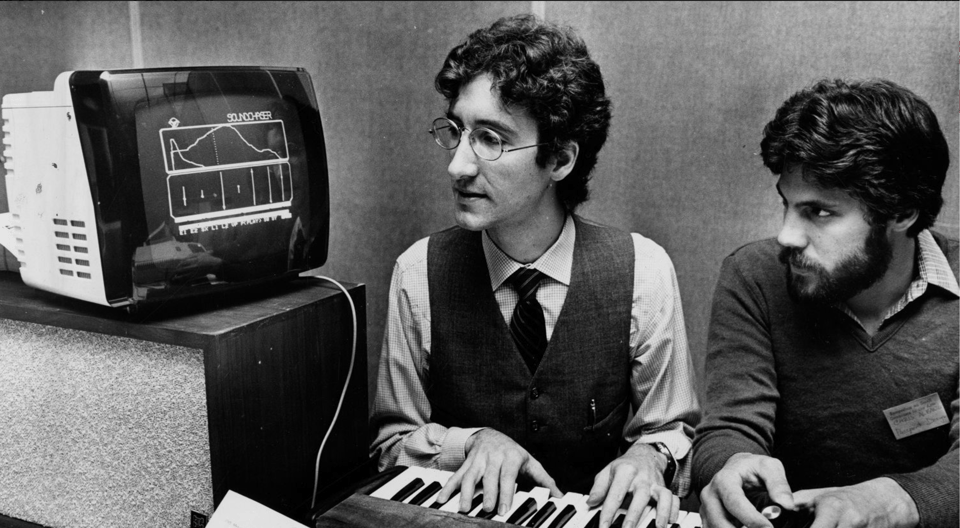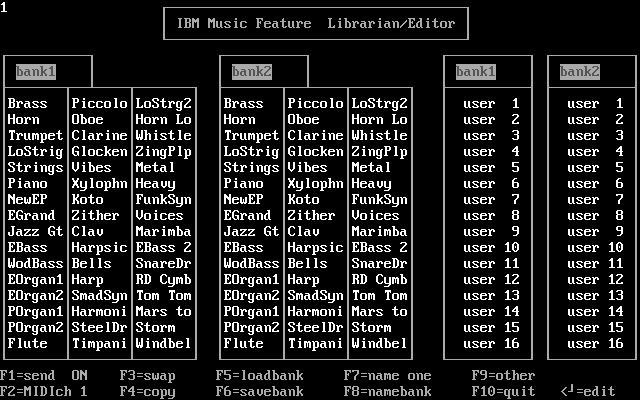AI Comes for Music
As the record labels sue AI companies for generating derivative songs, let us ask: What makes a song original and human anyway?
by Dan Cohen

This week another front opened in the burgeoning conflict between human creativity and artificial intelligence. Like the writers and publishers before them, record labels sued two AI companies to stop their bots from extruding new songs based on the distillation of old ones.
Judging by the audio submitted by the labels, it certainly seems that AI models can now generate music that is so close to the source material that it would impress a cruise ship cover band. But the lawsuit implicitly raises a more uncomfortable question about contemporary music: aren’t a lot of songs, countless tracks made by musicians not in cruise ship cover bands, also rather derivative?
Oddly, with popular music such echoes are not necessarily a bad thing. Musical imitation can produce boredom, but it can also move your feet. Who can deny the infectious pleasure of the Bo Diddley beat or the Amen break, even if they have appeared in hundreds of songs? With their shared soundscapes, we can fondly name musical genres and their eras so precisely — 1977 disco, 1998 boy bands, 2018 SoundCloud rap — that the AI music bots also know exactly what we mean. There’s a reason these bots are so effective.
There are many literary genres that traffic in unoriginal narratives, but tight constellations of riffs and beats seem much more endemic to music, especially popular music. Finding the line between “authentic and new” and “inauthentic and tired” is harder with music than with long-form text. As AI makes its way into the production of music, it’s worth thinking more about what makes music truly compelling.
* * *
At a pivotal moment in Robin Sloan’s new novel, Moonbound — a distant-future tale of humanity seeking to take back agency from the AI “dragons” that have betrayed us — a riveting song from our present suddenly rings out. You will almost certainly recognize the musical phrase invoked, as will billions of others. The song is beamed into the sky with an insurgent’s desperate hope. I don’t raise my fist in the air while reading very often, but in this case: air fist.
What triggered this response? As the spark for a human rebellion against artificial intelligence, Robin has selected a song that feels exactly right because it feels authentically human. Its simple but potent line of notes are no less iconic than the five notes of Close Encounters of the Third Kind, but its rhythm throbs like the human heart.
Could an AI bot have written this song, spitting it out on virtual sheet music? The unsettling answer must surely be yes. The sonic palette is constrained enough that the universe of possible musical variations is tiny compared to, say, biochem AI AlphaFold’s unimaginably massive universe of protein structures.
But notes do not make the music. What makes the song human isn’t an arrangement of tones and instruments but all of the human practices and connections beyond the sheet music: the conscious and subconscious influence of prior music that led to the song’s creation, the slightly imperfect manner in which the instruments are played on the recording, the mysterious way a song takes on a life of its own in various cultural contexts, the feelings each individual has in listening to the song and the places they hear it, the sense of a personal transmission from one human being to another through emotions expressed in lyrics and sound.
That is, there are human relationships implied in the best and most popular songs, familiarity strengthened by communal associations, contexts of use and reuse. That Moonbound’s rebel song originated not so far from his own origins was surely part of that context for Robin. That the music made its way around the world, and to fame, was surprising and serendipitous, and relied on countless other very human factors. (Sorry, I’m not going to reveal the song. Read the book.)
* * *
Regardless of the outcome of the new lawsuit, we are entering a period in which AI will make music, perhaps a great deal of it. Undoubtedly the record labels that are plaintiffs, and some of their musicians, are tinkering right now with the use of AI in the production of new songs.
But when we assess the alchemical process that produces a melody and, ultimately, a great and memorable and meaningful song, these technical shortcuts are insufficient, in the same way that it’s hard to be a great writer if you don’t read widely and regularly practice the craft of writing. Moreover, the cultural processes that surround music and reward enthralling new sounds and genres are complex, and often dependent on avant-garde communities of practice or the unpredictable minds of talented experimenters with encyclopedic tastes.
Aside from one critical moment, Moonbound is not about music, but about our commonly held stories and their importance to humans. Those very same stories are also important to the menacing AI that has digested them. Indeed, the AI is so captivated by prior narratives encoded in its large language models that it is intensely needy for tales to resolve in familiar ways, like a chord progression usually does in a pop song. Meanwhile, in our story-making and our music-making, humans occasionally go off-script. In those moments, we make utterly new songs that delight other humans in unexpected ways, and sometimes even make us put our fists in the air.
